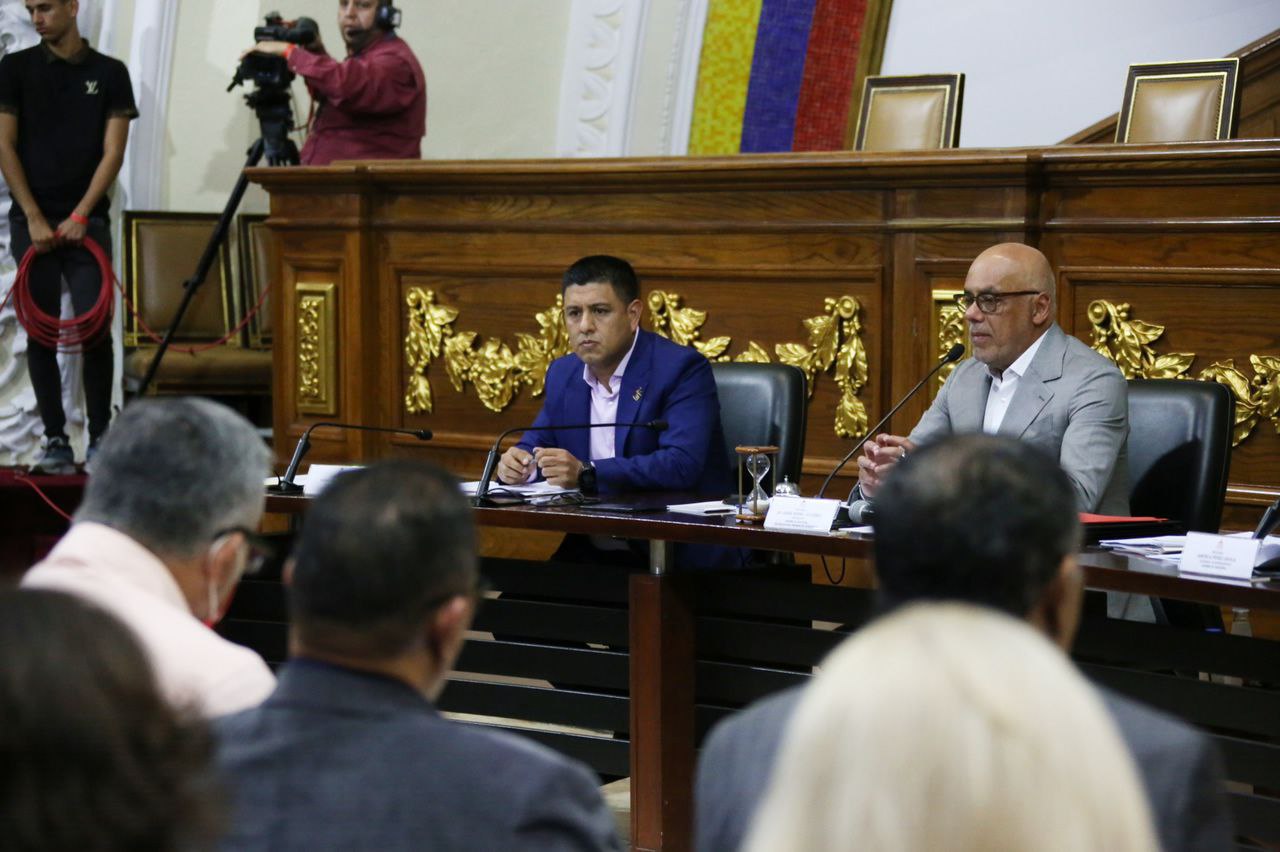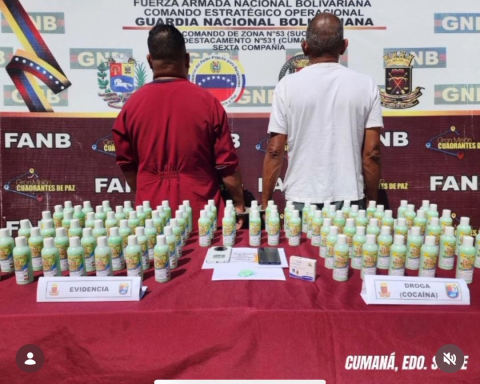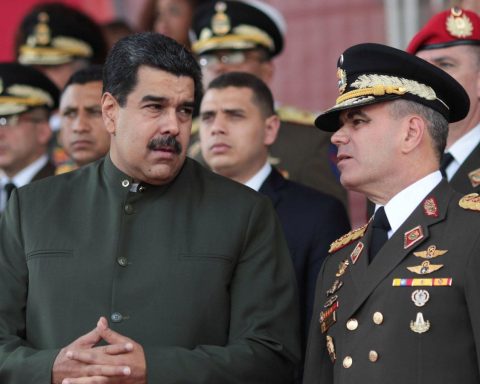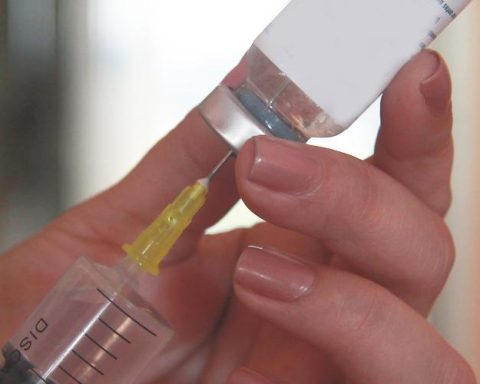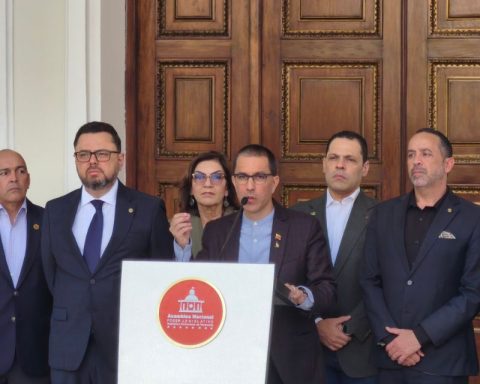At the end of the meeting of the Consultative Council of the Venezuelan National Assembly (AN) that was held this Tuesday afternoon at the Legislative headquarters, the first vice president of Parliament, deputy Pedro Infante, stressed that contact with the people will be the priority in 2023 and pointed out that the president of that state power, deputy Jorge Rodríguez, instructed to form a commission that deals with the dissemination of the laws and stimulates participation and popular consultation.
Infante pointed out that during the meeting in the Protocol Chamber of the Federal Legislative Palace, in Caracas, in which the parliamentary bloc of the Homeland and the opposition participated, the laws discussed, approved and in the process of approval of the previous cycle were reviewed “in the first place We review the development of all the legislative work of the years 2021 and 2022, which adds up to 59 laws approved… as part of the recovery of the dynamics of the Venezuelan Legislative Power.
The first vice president of the AN added that the instruction of the head of Parliament’s president to “work on an intensive street agenda… of deployment in the territory” was reviewed, and announced that deputy Jorge Rodríguez “required the formation of a working commission to organize the method for public consultation of the laws, the dissemination of the approved laws, which incorporates technological elements… all the possible mechanisms to consult and listen» to the Venezuelan people.
bidirectional channel
The first vice president of the AN explained that the dissemination and consultation mechanisms must be bidirectional so that all the laws that are approved in the first discussion are disseminated to all states, social movements and the general public and that the population can also provide feedback on the proposals with information that will be evaluated in the second discussion of the legal instrument that the deputies debate.
“Ideas and contributions that they have on each of the laws that are approved here (in the AN),” said the spokesperson and stressed that the task will be to go to each parish in the country for the legislative debate and “put an ear to listen to each once again » to the common people.
Infante ratified the information already disseminated that in 14 of the 15 permanent commissions of the Legislature the presidents of these instances were ratified.
He also announced that in terms of dissemination, plans will be developed to inform the population regarding the plan for the first 100 days of implementation of the laws that are approved.
53 inter-parliamentary friendship groups
The vice head of Parliament pointed out that the balance of the activity “of the inter-parliamentary friendship groups that have been forming in these two years of work (since this AN was installed in 2021)” was also reviewed and stressed that the presidencies were appointed and vice-presidencies of 53 friendship groups “of which 24 have already been formally installed and the other 29 groups will be installed in the coming weeks.”
“It is parliamentary peace diplomacy accompanying President Nicolás Maduro… normalizing; finding Venezuela again with the world and taking the truth of Venezuela to the world,” said Infante, stressing that the head of state is in charge of the country’s foreign relations.
The legislative agenda 2023
The first vice president of the AN referred to the review of the legislative agenda that the Venezuelan Parliament will have for the period that began on January 5 and described the five axes that, in terms of legal instruments, this power of the State has raised.
reiterated what was stated by the president of the AN this Monday night at the Miraflores Palace, seat of the Executive, during the formal act of notification of the beginning of the parliamentary exercise before the Venezuelan president, Nicolás Maduro.
The agenda includes as the first block the instruments referring to economic matters, of which the Public Procurement laws, Digital Commerce, the Organic Law of Tax Coordination and Harmonization stand out, the debate of which continues after its approval in the first discussion last year, and is incorporated to this block the reform of the Organic Law of the Communal Economic System, which, although it is an instrument of the block of laws of the Popular Power, is included on the basis of the importance of the Communal Economy for the development of the country, “another of the levers for economic recovery,” said Infante.
He referred to the block of laws for the Right to the City, in which the instruments referring to public services such as water, the integral management of garbage and the environment are developed, and also pointed out the block of Laws of Popular Power, to approve regulations in favor of the development of Communes and Communal Councils as vertices of participatory and leading democracy.
Also the block of laws for human development that includes regulations for the protection of workers and workers, as well as laws for the protection of people with autism spectrum disorders and their families.
Finally, he referred to the block of the Laws of the Judicial Revolution, of which he highlighted the Law of the Justice System, Law of the Magistracy and the Law of Truth and Historical Memory.
Infante also referred to how, in accordance with the Constitution, Parliament attends to the contributions from the Executive and from each branch of public powers, highlighting the proposal of the Minister of the Interior, A/J Remigio Ceballos, to review the instruments referring to citizen coexistence in the country.
